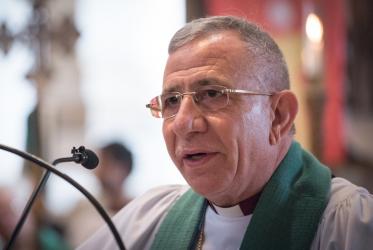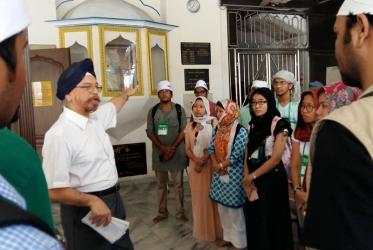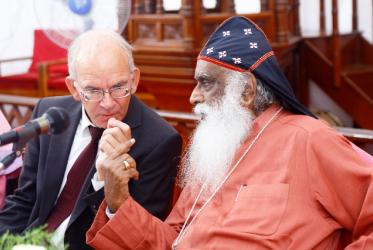Displaying 41 - 60 of 95
Bishop Younan awarded Niwano Peace Prize
22 February 2017
Plans for 2017 decided by WCC Executive Committee
01 December 2016
Religion: Way of war or path to peace?
30 June 2016
Lahore bombing shows vulnerability of Pakistanis
31 March 2016
WCC/UN conference calls for coordinated action on refugee crisis
20 January 2016
WCC Executive Committee works toward a future of peace and justice
19 November 2015
WCC general secretary sends Diwali greetings to Hindu partners
12 November 2015
WCC urges responsibility for and support to the refugees in Europe
04 September 2015
Church leaders celebrate the life and work of Dr M.M. Thomas
02 September 2015
WCC remembers the life and ministry of Tony Waworuntu
26 August 2015











